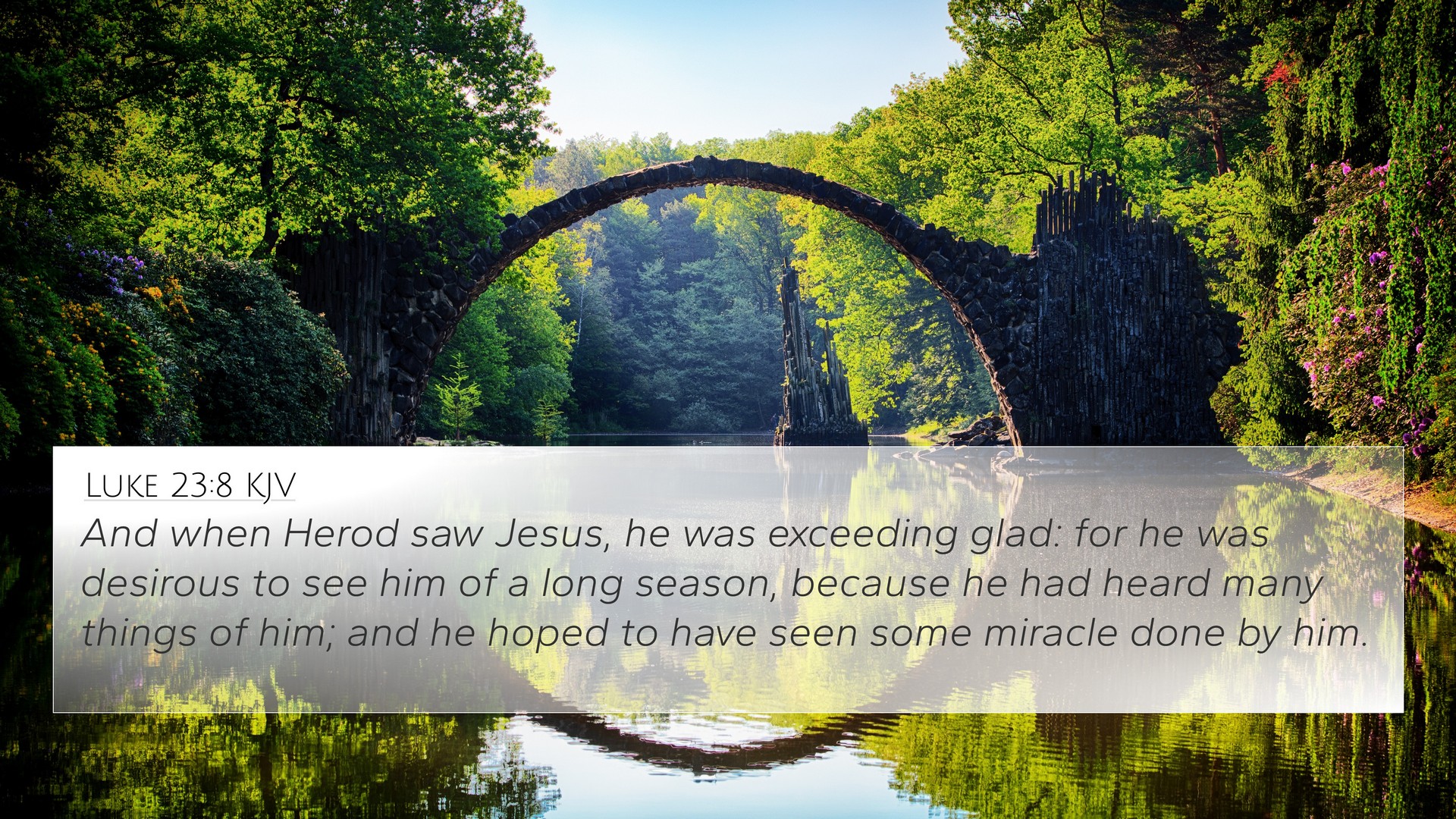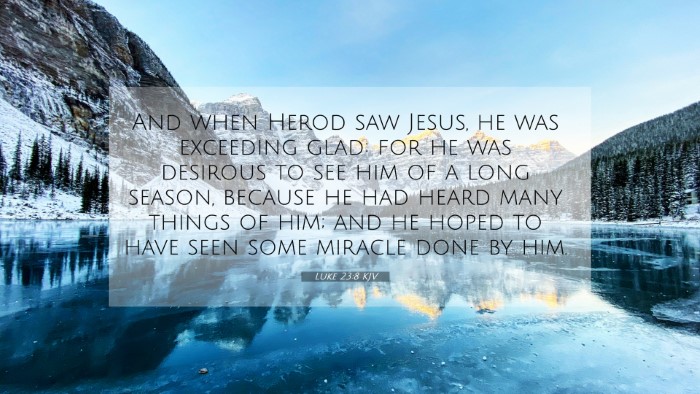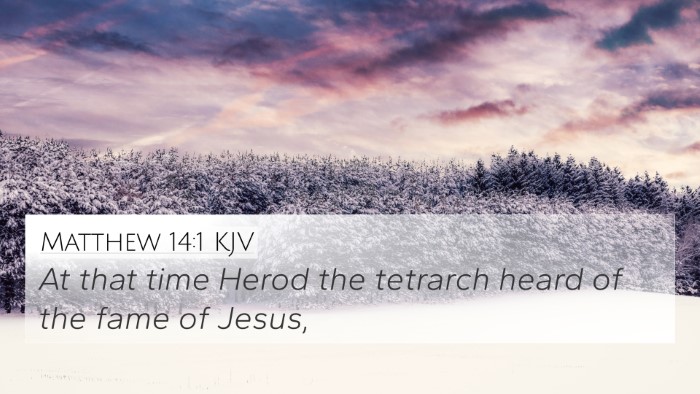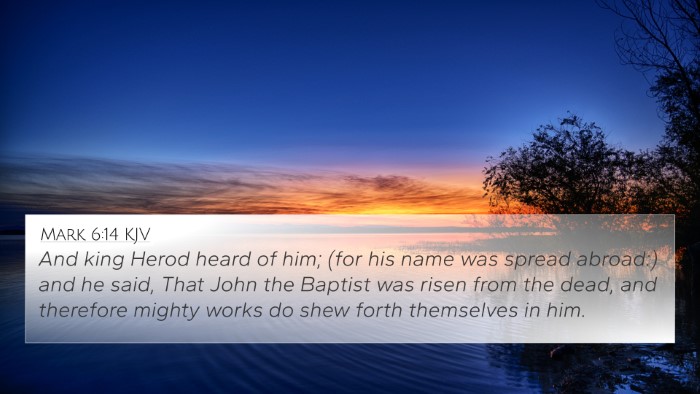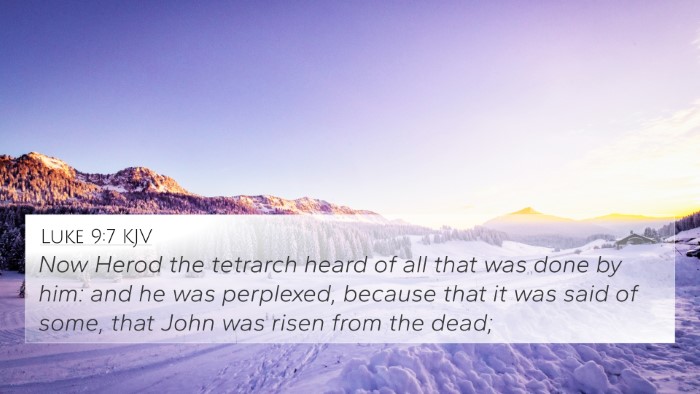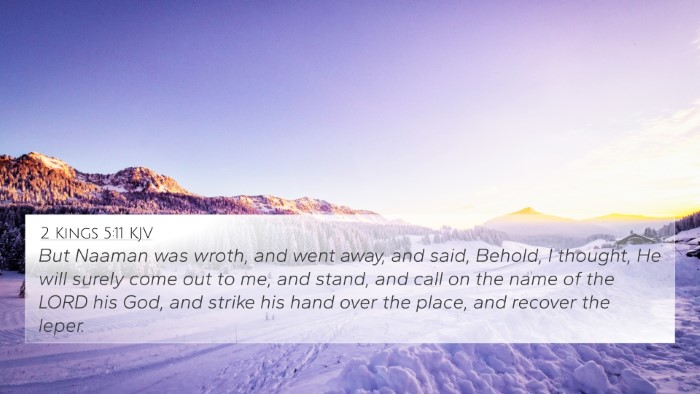Understanding Luke 23:8
Luke 23:8 states: "And when Herod saw Jesus, he was exceedingly glad; for he was desirous to see Him of a long season, because he had heard many things of Him; and he hoped to have seen some miracle done by Him."
This verse occurs during the trial of Jesus before Herod, where he is presented as a curious figure eager to witness the miracles of Jesus. The significance of Herod's reaction and the context provides profound insights into human nature and the perception of Christ's ministry.
Commentary Insights
Examining various public domain commentaries reveals rich layers of meaning in this verse.
Matthew Henry's Commentary Insight
Matthew Henry notes that Herod's desire to see Jesus was rooted in his curiosity rather than a sincere search for truth. Henry emphasizes that worldly rulers often seek signs and wonders, yet true faith involves more than mere spectacle. It challenges believers to reflect on their motivations for seeking Christ.
Albert Barnes' Commentary Insight
Albert Barnes highlights Herod's prior knowledge of Jesus and His miracles. He interprets Herod's gladness as superficial, driven by a desire for entertainment rather than a genuine understanding of Christ's purpose. Barnes stresses that being impressed by miracles doesn’t equate to true belief, indicating that many seek signs but fail to recognize the deeper message of the Gospel.
Adam Clarke's Commentary Insight
Adam Clarke comments on Herod's interest, linking it to his previous actions and moral failings, such as the unjust execution of John the Baptist. Clarke suggests that Herod's desire to see Jesus is indicative of a man who is more captivated by the idea of power and spectacle than by genuine righteousness. This points to a broader theme of how political figures often misinterpret the significance of Christ's miracles.
Thematic Connections
Luke 23:8 creates connections with various themes throughout Scripture:
- Curiosity vs. Faith - This verse explores the distinction between a superficial desire for signs and the deeper call to faith. Herod's curiosity invites comparisons to those today who seek Christ for personal gain rather than for salvation.
- Power and Authority - Herod's position as a ruler highlights the tension between worldly power and divine authority. Reflections here can link back to passages in Matthew where Jesus states His kingdom is not of this world.
- The Role of Miracles - The miraculous works of Jesus are a focal point of His ministry. This prompts reflections on how miracles serve as signs pointing to the truth of Christ's identity rather than ends in themselves.
- Judgement and Accountability - Herod’s frivolous desire for entertainment contrasts against the theme of accountability presented throughout the New Testament, especially in passages regarding judgement.
Cross-References to Luke 23:8
Several Bible verses relate closely to Luke 23:8:
- Matthew 14:1-2 - Discusses Herod's awareness of Jesus' fame and draws parallels between his fear of Jesus and his actions towards John the Baptist.
- John 6:30-31 - Encounters where the crowd seeks Jesus for more signs, reflecting a similar superficial desire for miracles.
- 1 Corinthians 1:22 - "For Jews demand signs and Greeks seek wisdom," highlighting how different groups approach faith.
- Mark 6:14-16 - Describes Herod's confusion over Jesus’ identity, bringing insight into the varied reactions to Christ.
- Luke 23:11 - Illuminates how Herod treats Jesus with contempt, theatricality, and mockery, contrasting with his earlier eagerness.
- John 12:37 - Discusses the incredulity of many who witnessed Jesus' miracles yet did not believe, a theme present in Herod's story.
- Matthew 12:38-40 - Where the Pharisees demand a sign from Jesus, demonstrating the link between disbelief and the desire for miracles.
Conclusion
Luke 23:8 serves as a poignant reminder of human nature's relationship with the divine. It encourages reflection on whether our pursuits of Christ stem from genuine faith or mere curiosity. Through understanding this verse, believers are invited to engage in deeper study and reflection, utilizing tools for Bible cross-referencing to uncover meaningful connections within Scripture.
Tools for Further Study
For those interested in exploring more about Bible verse cross-references, consider:
- Bible Concordance - A useful tool for finding specific words and their occurrences across the Bible.
- Cross-Reference Bible Study - Engaging in structured studies to uncover thematic connections between scriptures.
- Bible Reference Resources - Various guides and materials that assist in Bible study and understanding scripture context.
